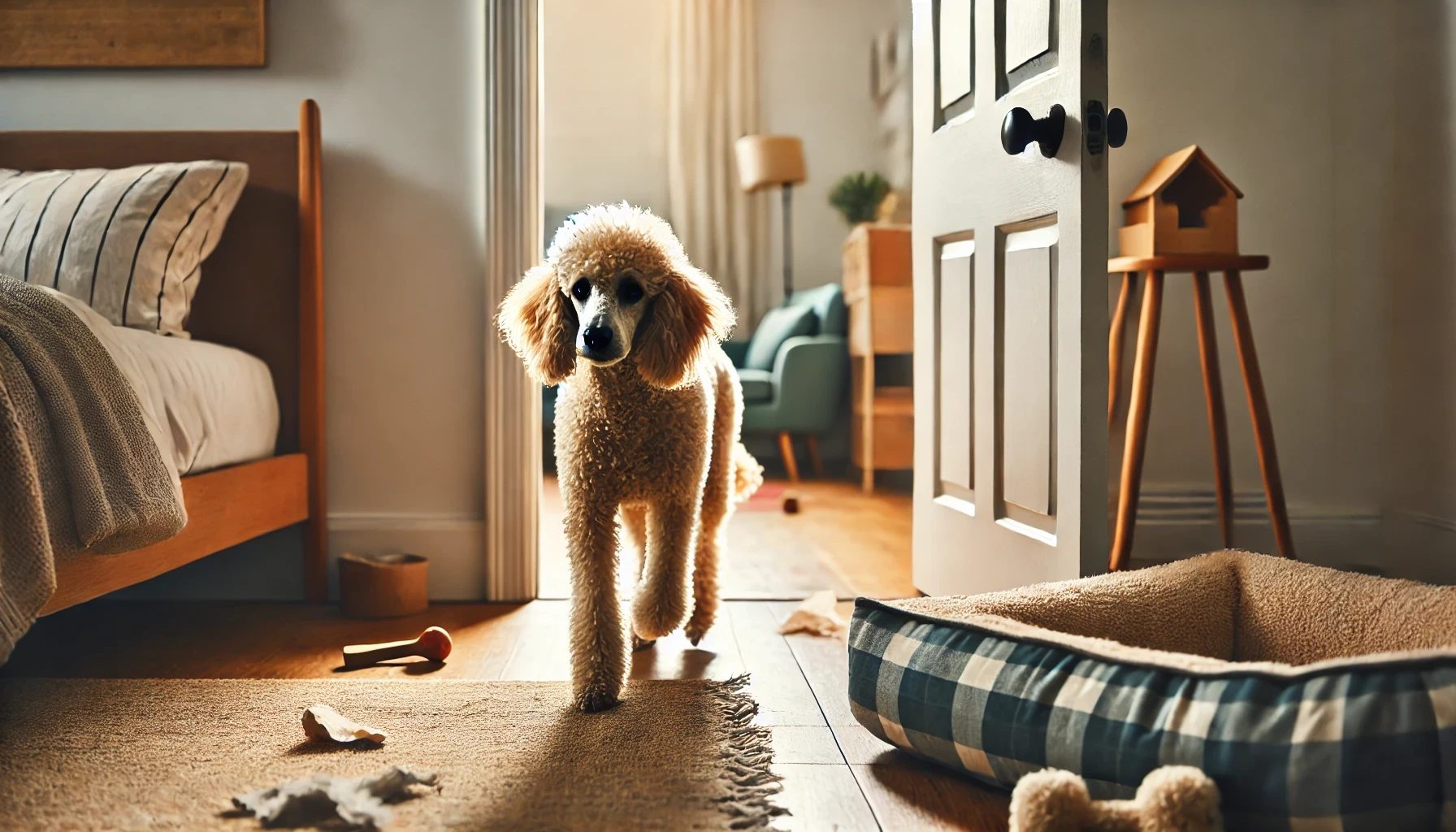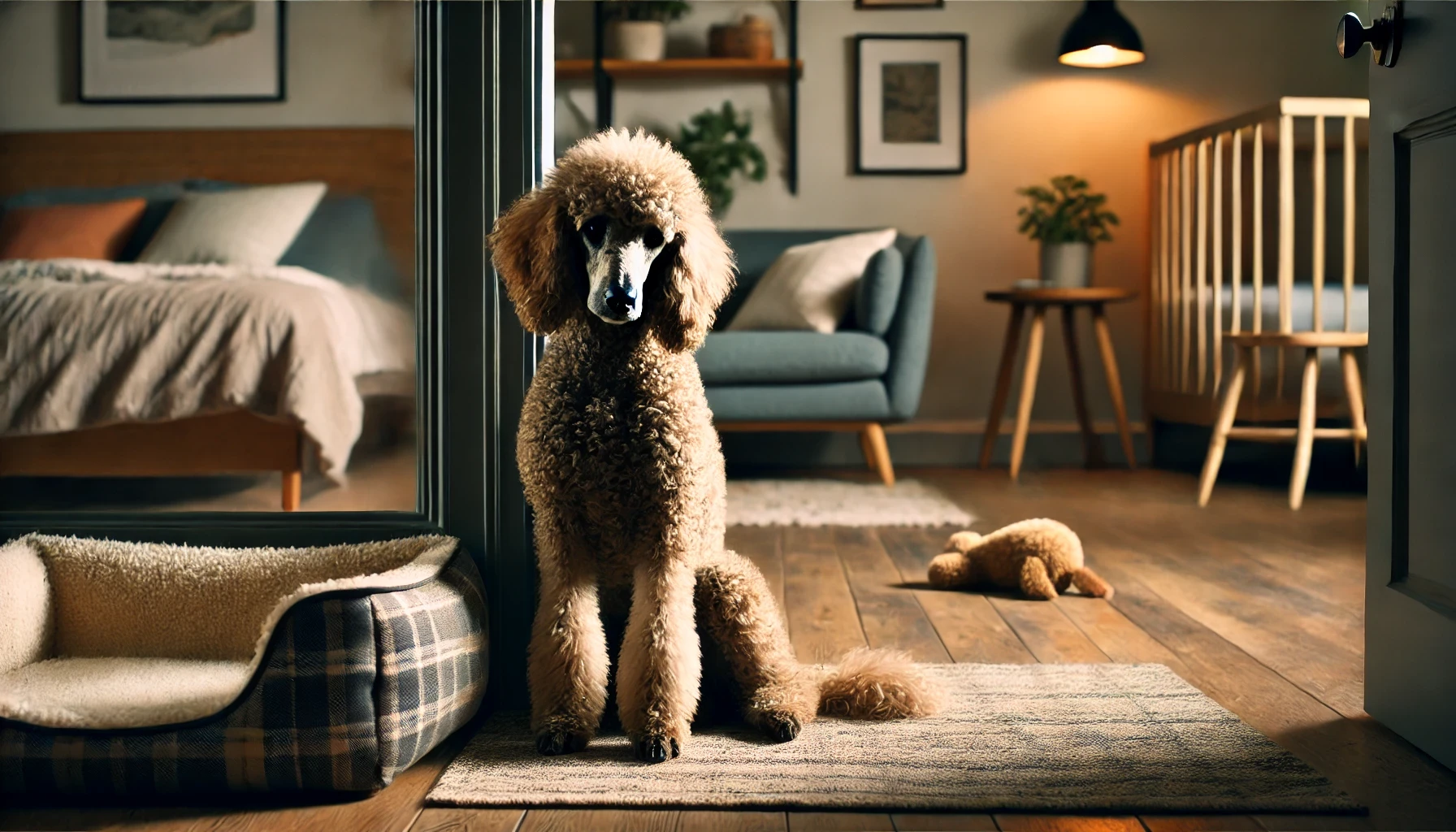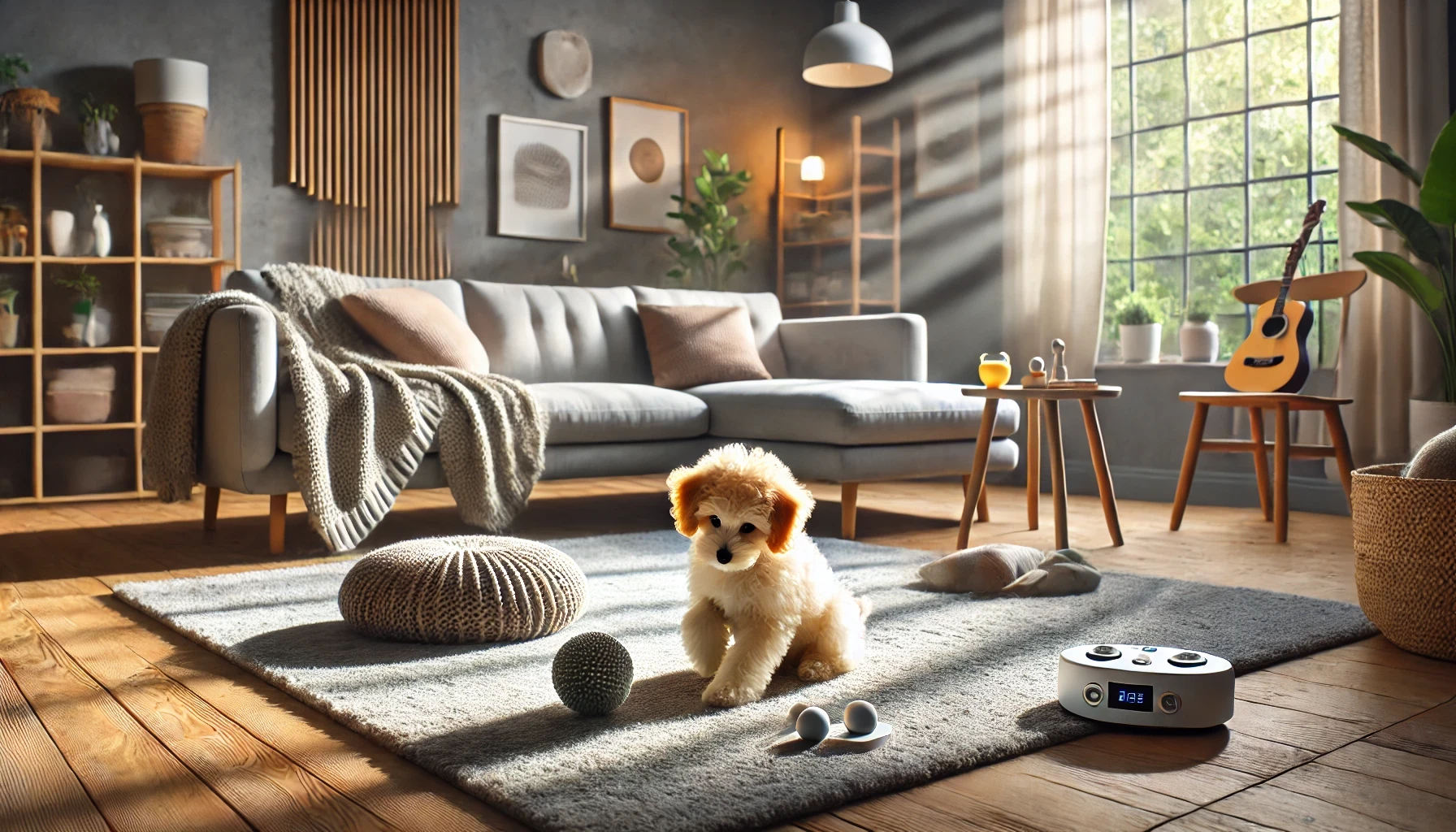On this page
Could Your Standard Poodle Be Struggling With Separation Anxiety?
Yes, separation anxiety is a common issue in Standard Poodles, especially at 1 year old when they are highly energetic and emotionally connected to their owners. This breed’s intelligence and loyalty make them particularly sensitive to being left alone, leading to behaviors like barking, destruction, or pacing. Addressing this early is essential for their mental health and your peace of mind.
Diet can also influence how well your Poodle copes with stress. Providing a diet rich in omega-3 fatty acids, tryptophan, and antioxidants supports brain health and emotional balance. Pairing nutritional adjustments with consistent training routines and environmental changes can help reduce separation anxiety effectively.
Ease your Standard Poodle’s anxiety with our app’s expert tips and personalized care plans.
Why Are Standard Poodles Prone to Separation Anxiety?
Is your Poodle’s breed contributing to their separation anxiety? Yes, Standard Poodles’ unique temperament and needs make them more likely to develop this condition.
Key Reasons for Separation Anxiety:
Strong Emotional Bonds: Poodles form deep attachments to their owners and struggle with being left alone.
Intelligence: Their sharp minds can amplify feelings of boredom and loneliness.
High Energy Levels: Without adequate stimulation, they may channel their frustration into destructive behaviors.
Past Experiences: Rescue dogs or those with inconsistent care early in life may exhibit stronger signs of anxiety.
Dr. Emily Larson notes, “Standard Poodles thrive on companionship, making them more prone to anxiety when their social needs are unmet.”
Prevention Tips:
Gradually increase the time you leave your dog alone to build their confidence.
Introduce interactive toys to keep their minds occupied.
Create a consistent schedule to help them feel secure.
Discover training routines to prevent separation anxiety with Dosty’s expert advices..
What Are the Signs of Separation Anxiety in Standard Poodles?
Could your dog’s behavior be linked to separation anxiety? Yes, certain actions clearly indicate stress when you’re not home.
Common Symptoms:
Excessive Barking or Whining: Vocal distress often starts when you leave.
Destructive Chewing: Furniture, shoes, or doors may become targets.
Pacing or Circling: A repetitive sign of restlessness or nervousness.
House Soiling: Accidents indoors despite being house-trained.
Clinginess: Your Poodle may follow you obsessively before you leave.
Dr. Michael Carter explains, “Recognizing these behaviors early can help address separation anxiety before it becomes a severe issue.”
What You Can Do:
Record your dog’s behavior to identify patterns of stress.
Avoid making dramatic exits or returns, which can heighten their anxiety.
Provide a calm, distraction-filled environment when you leave.

How Can You Help Your Standard Poodle Cope With Separation Anxiety?
Are there actionable steps to reduce your Poodle’s stress? Yes, with a mix of training, environmental adjustments, and calming aids, you can significantly ease their anxiety.
Steps to Reduce Anxiety:
Gradual Desensitization: Practice leaving for short periods and slowly increase the duration over time.
Create a Safe Zone: Set up a comfortable space with their favorite toys and blankets.
Mental Stimulation: Use puzzle toys or treat-dispensing games to keep them engaged.
Calming Aids: Consider anxiety wraps, pheromone diffusers, or calming music.
Dr. Laura Bennett suggests, “Consistency in training and environmental changes is key to helping Standard Poodles overcome separation anxiety.”
Comparison With Other Breeds:
While Standard Poodles are more emotionally sensitive than independent breeds like Greyhounds, their intelligence makes them quicker to adapt to training routines.
However, they require more mental stimulation than breeds like Bulldogs to avoid boredom-related anxiety.
Find our calming tools and training resources for Poodles on our Pet Care Super App - Pet Care Super App Dosty. Explore now!
Can Diet and Exercise Help Manage Separation Anxiety in Poodles?
Could physical and nutritional factors influence your Poodle’s emotional health? Yes, maintaining a balanced diet and regular exercise can help reduce stress.
Dietary Tips:
Omega-3 Fatty Acids: Found in fish oil, these promote brain health and reduce inflammation.
Tryptophan: An amino acid that increases serotonin levels for a calming effect.
B Vitamins: Support the nervous system and emotional stability.
Exercise Recommendations:
Provide at least 60 minutes of daily physical activity to burn excess energy.
Incorporate mental exercises like obedience training or scent games.
Schedule walks before leaving to ensure they’re calm and tired.
Dr. Rebecca Allen advises, “Combining physical activity with the right diet creates a well-balanced dog, reducing the likelihood of separation anxiety.”
When Should You Seek Professional Help for Separation Anxiety?
Is it time to consult an expert for your Poodle’s anxiety? Yes, if the symptoms persist or worsen, professional intervention may be necessary.
Indicators for Professional Help:
Severe Symptoms: Self-harm, excessive barking, or destructive behaviors that disrupt daily life.
No Improvement: Lack of progress despite consistent training and care.
Health Issues: Anxiety that causes physical problems like weight loss or skin conditions.
Treatment Options:
Veterinary Consultation: A vet can recommend anti-anxiety medications or calming supplements.
Behavioral Therapy: Work with a certified dog trainer or animal behaviorist to address deep-rooted anxiety.
Advanced Training Techniques: Counter-conditioning and desensitization tailored to your Poodle’s needs.
Dr. Sarah Thompson states, “Professional help ensures your Poodle’s anxiety is managed effectively, improving their quality of life.”
Connect with experienced vets and trainers through Dosty’s app for expert advice. Start today!

Conclusion: Supporting Your Standard Poodle Through Separation Anxiety
Separation anxiety in a 1-year-old Standard Poodle can be managed with patience, consistency, and care. By implementing gradual desensitization, adjusting their diet and exercise routine, and creating a calm environment, you can help your Poodle feel more secure when left alone. For severe cases, seeking professional assistance is essential to ensure their well-being.
Simplify your dog’s care with Dosty’s expert tools and resources. Download the app now!


